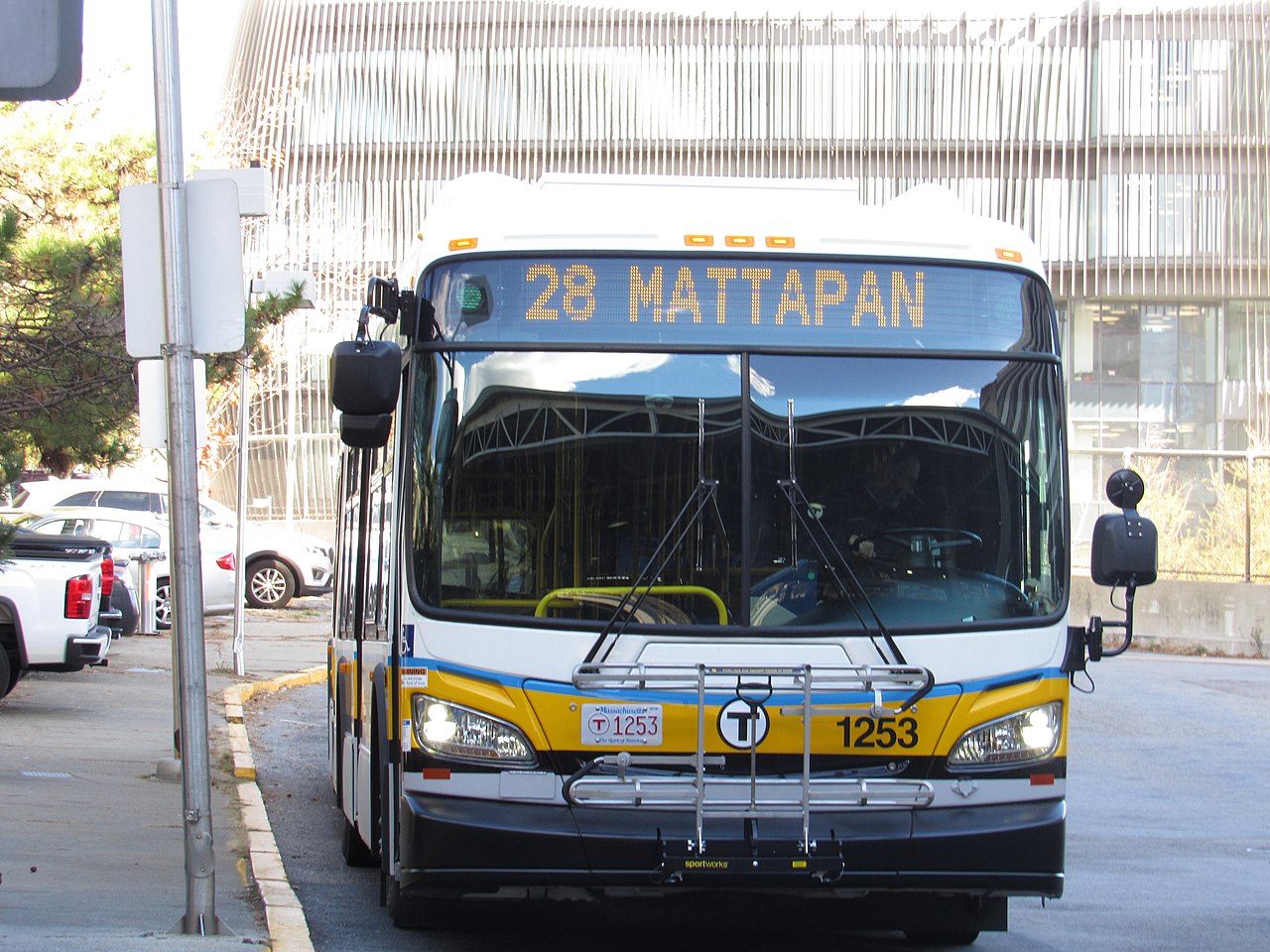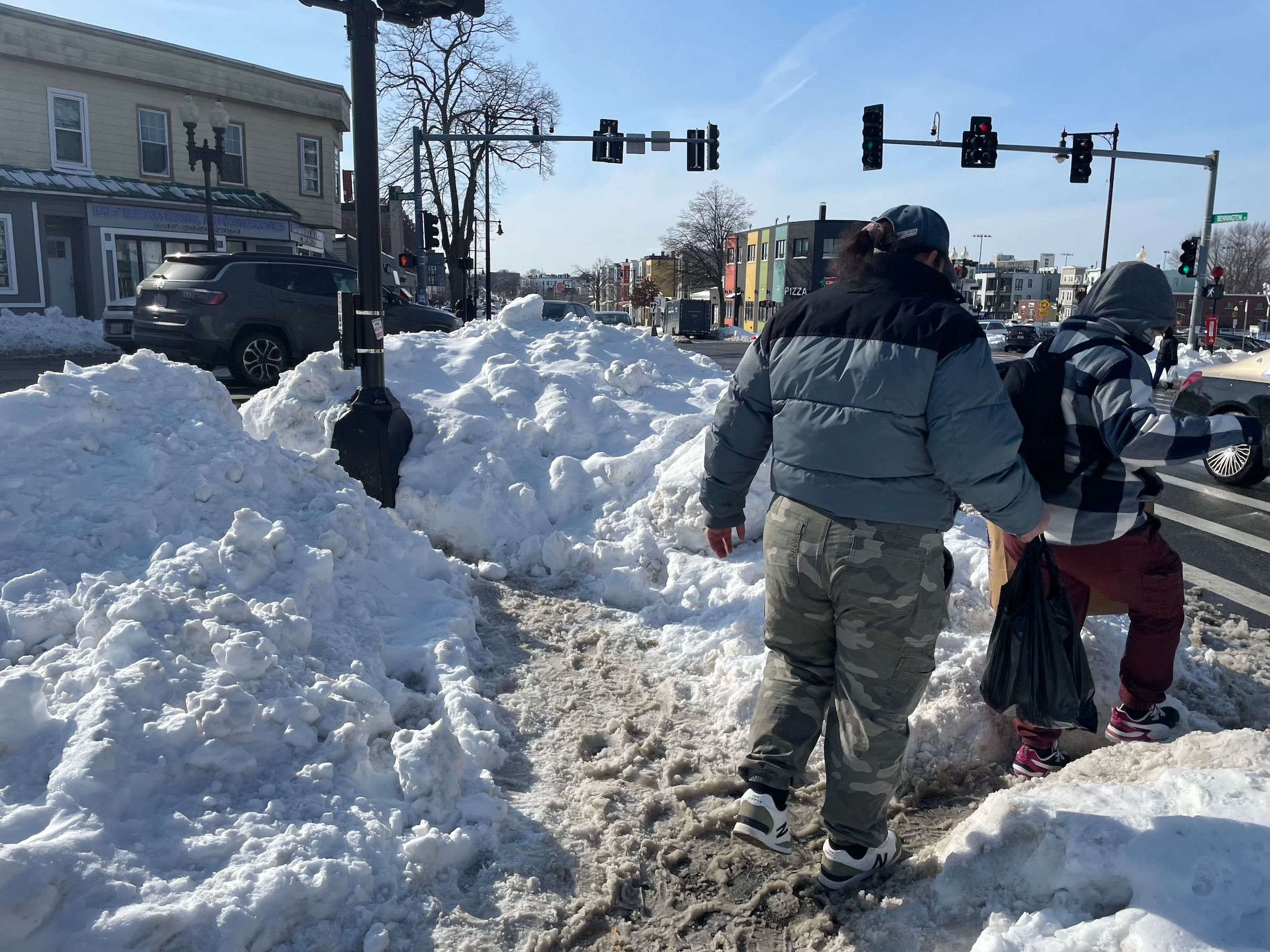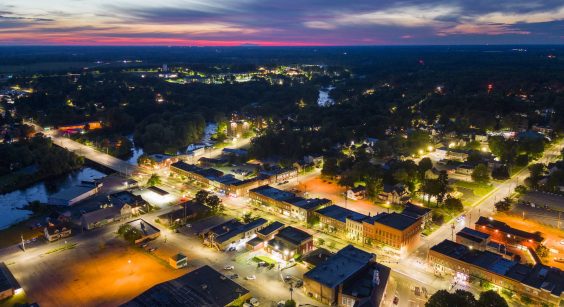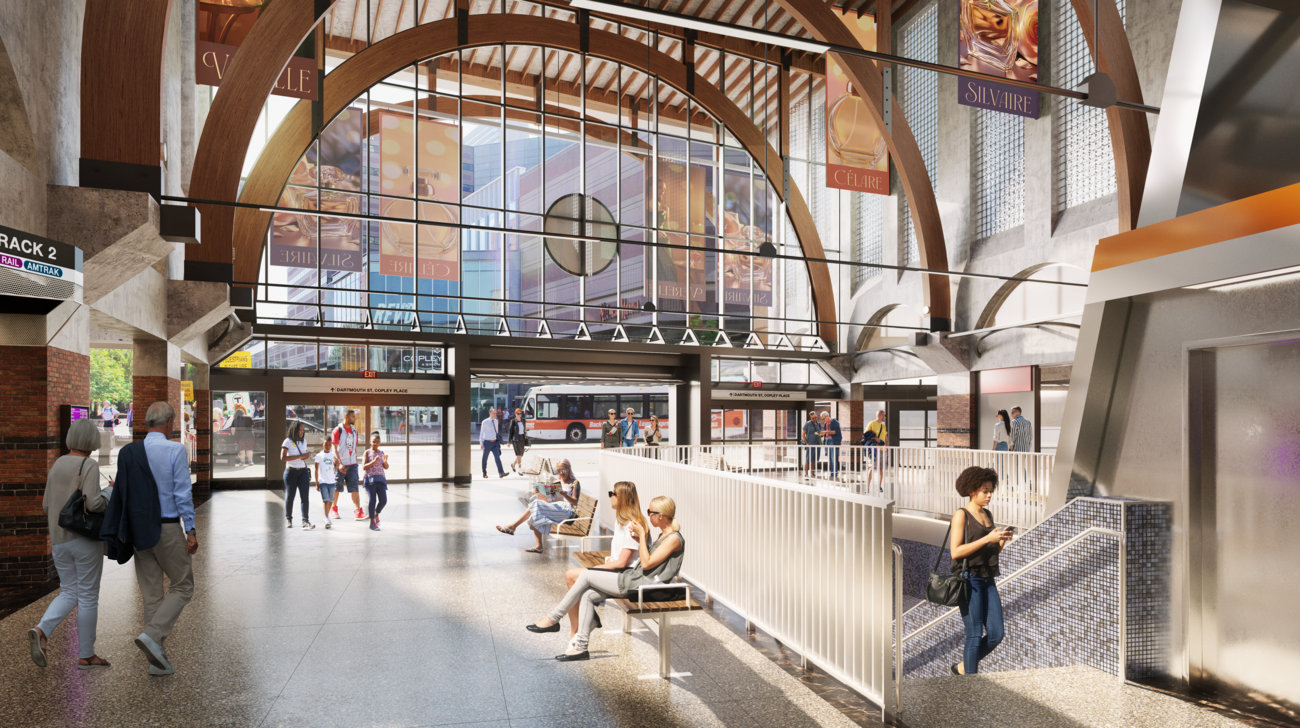Mayor Kim Janey visited Mattapan Square Monday morning to announce a pilot program that will offer fare-free rides on the MBTA's Route 28 bus route – the Commonwealth's busiest bus route – for three months this fall.
The pilot will begin on August 29th and last until November 29th. The City of Boston will pay $500,000 to compensate the MBTA for the lost fare revenue.
“As someone who depends, like many Bostonians, on consistent and reliable MBTA service, I know firsthand how vital Route 28 is for the economic corridor that connects Mattapan, Roxbury, and Dorchester. The Route 28 Free Fare pilot program demonstrates the City’s commitment to making transportation accessible and affordable for residents and commuters,” said Mayor Janey in a press release. “I am grateful for the partnership of the MBTA and the Boston Transportation Department for their collaboration in realizing this effort.”
Janey's rival in this fall's mayoral race, Boston City Councilor Michelle Wu, was also in Mattapan Square on Monday morning to celebrate the announcement – and took the opportunity to claim some credit for the idea, which she proposed in a 2019 MBTA board hearing about that year's fare increases:
It takes vision & organizing to shift what's possible. #FreetheT #28Bus pic.twitter.com/bJsdmmQD9y
— Michelle Wu 吳弭 (@wutrain) July 26, 2021
In a statement released Monday, Wu said that "free bus service is possible in Boston when we organize to make it happen, but we don’t just need one free route through Election Day—we need a system that reaches across our city."
Wu's office has also published a new white paper in which she called for expanding the fare-free pilot to three of busiest bus routes – the 28, the 66 between Allston and Longwood, and the 116 in East Boston.
Before the pandemic, the 28 had been the T's busiest bus route, with almost 13,000 riders on a typical weekday. The route runs along Blue Hill Avenue from Mattapan Square to Grove Hall, then on Warren Street to Nubian Square.
Because the vast majority of the route's immediate neighbors identify as people of color, the city's fare-free pilot could help address major inequities in the city’s bus network, where Black bus riders currently spend, on average, 64 more hours every year traveling than white bus riders.
The City of Boston is also pursuing longer-term plans to transform Blue Hill Avenue and Warren Street with center-running dedicated bus lanes, which would help the 28 and other routes run faster and more reliably.
But even without those dedicated lanes, the fare-free pilot is expected to help cut travel times on the 28, since bus drivers will spend less time collecting fares,
The city has set up a website for the pilot program at www.boston.gov/28bus.






